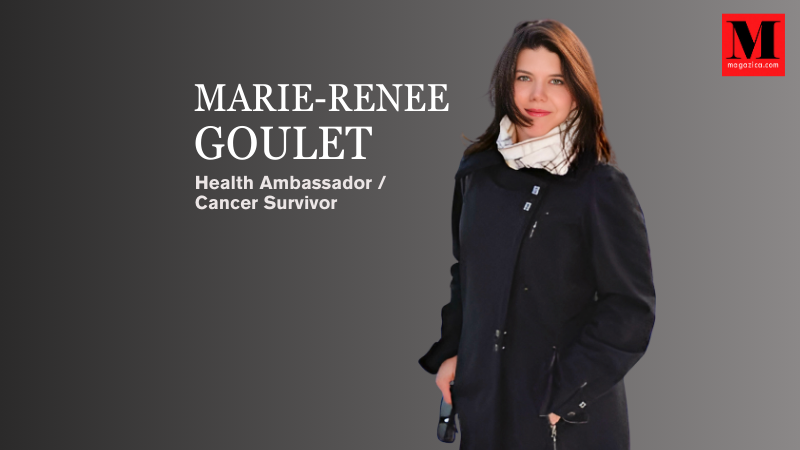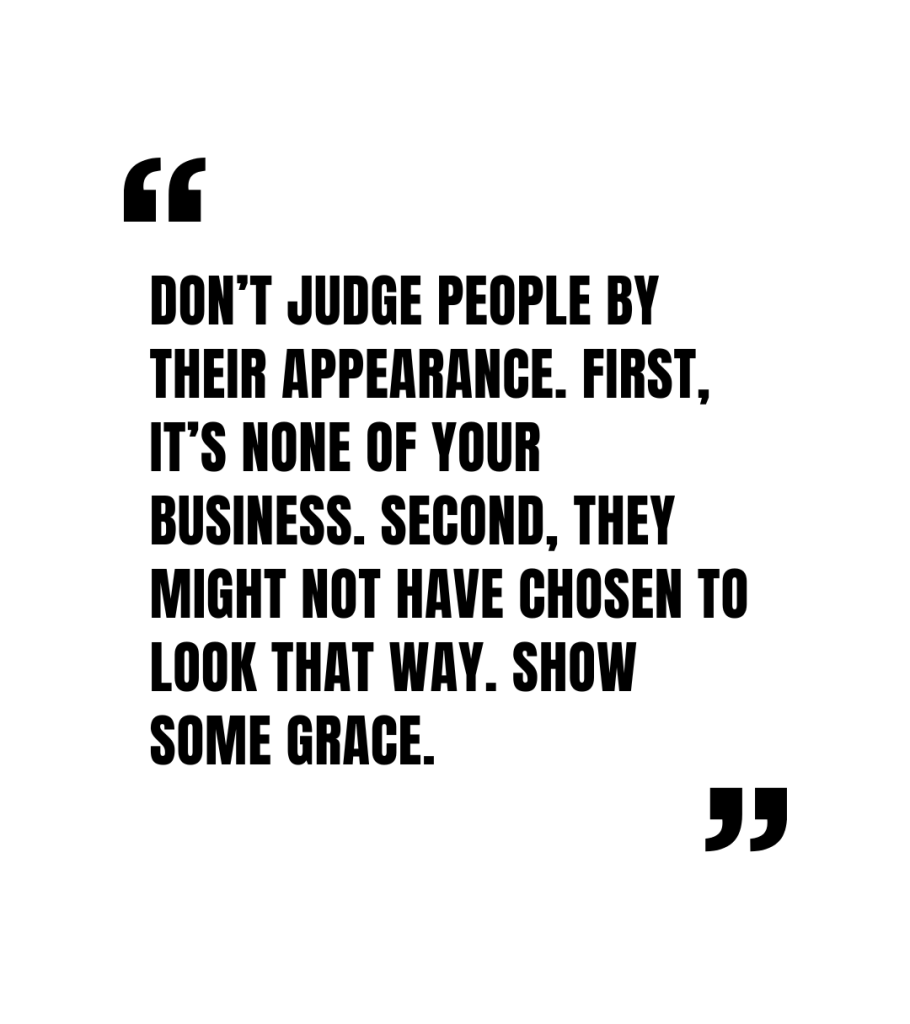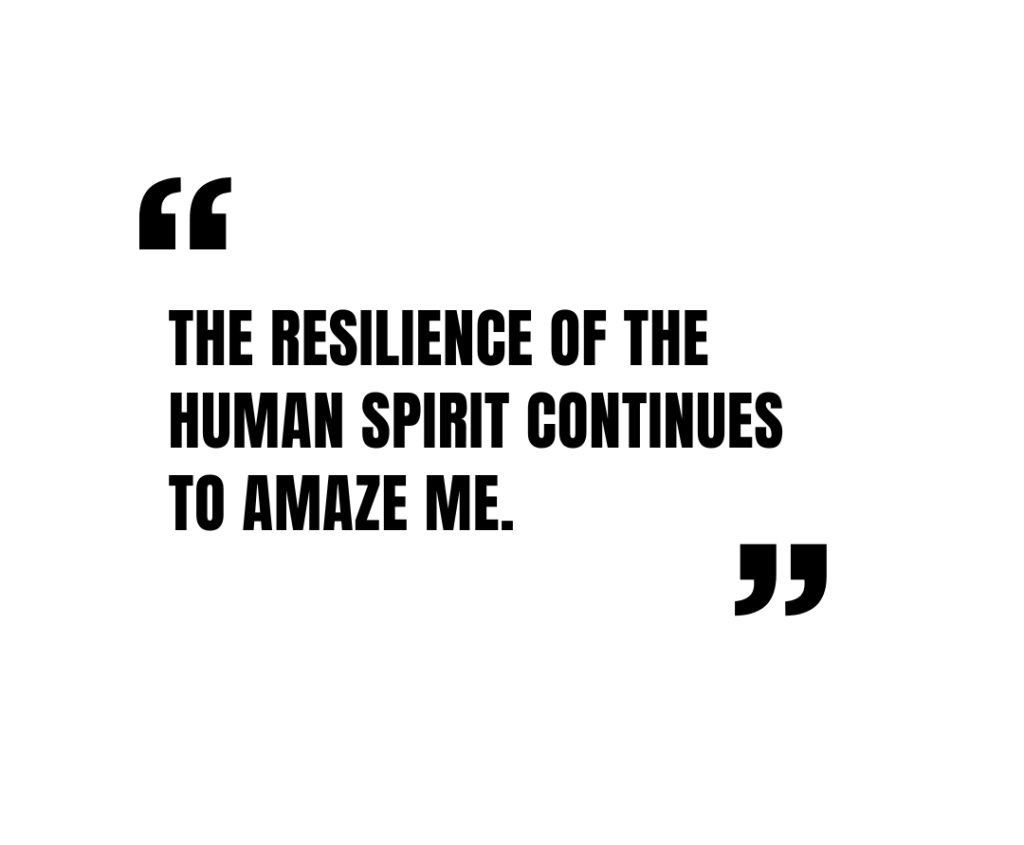Fighting Misdiagnosis: A Metaplastic Breast Cancer Story
- Home
- Fighting Misdiagnosis: A Metaplastic Breast Cancer Story

Fighting Misdiagnosis: A Metaplastic Breast Cancer Story
Imagine being told you have the “good kind” of cancer, only to discover it’s one of the most aggressive forms. That’s what happened to Marie-Renee Goulet. After a delayed diagnosis and a series of medical missteps, she found herself facing a daunting battle against metaplastic breast cancer. This is a story about resilience, the importance of advocating for your own health and finding hope in the face of the unimaginable. It’s a reminder that even when the odds are stacked against us, the human spirit can endure.
Initial Diagnosis
In late February 2023, I found a lump in my left breast. After initially ignoring it for a couple of days, I realized how irresponsible that could be if it were cancer. I scheduled an appointment with my family doctor, who wasn’t concerned. “You’re my healthiest patient; it’s probably just a cyst,” she said. We scheduled a mammogram and ultrasound as a precaution.
I remember the ultrasound vividly: introductions, small talk, the wand pressed against my chest. Then, silence. The atmosphere in the room shifted. I saw the mass, highlighted in red, on the screen. A biopsy was scheduled. Soon after, I got the call: “It’s carcinoma,” my doctor said. The diagnosis was metaplastic breast cancer (MpBC), an extremely rare form that makes up less than 1% of all breast cancers. The subtype was adenosquamous carcinoma, which is considered indolent and rarely metastasizes. I followed the standard protocol: lumpectomy and radiation.
My surgeon, one of the top-rated breast surgeons in Alberta, reassured me: “If you have to get breast cancer, this is the one to get.” (It’s not.) He and his nurse treated my case as if it were a mild inconvenience. At one point, I even said, “I feel like I’m just waiting for the other shoe to drop”—and it did.
MpBC develops from different types of cells, complicating diagnosis and treatment. It is often triple-negative, lacking receptors for estrogen, progesterone, and HER2, making it resistant to standard therapies. Early detection and specialized care are crucial because misdiagnosis can give this fast-growing cancer a dangerous head start. After the lumpectomy in June 2023 and radiation, I was back to normal by the fall. I resumed my life, returned to work, and rebooked my canceled travel plans.
The Other Shoe Drops
By late September 2023, I felt a stabbing pain in my left breast. Looking at the scar closely, I thought: Did I cut him off in traffic that morning? There was a new lump at the scar site, and it was painful. The nerve pain through my now-deformed nipple was severe enough to wake me at night. I managed to get an appointment with my surgeon in mid-October.
This is where things went wrong for the second time. With his excellent bedside manner and expensively barbered appearance, my surgeon seemed more focused on aesthetics than my health. He took a quick look at my chest and dismissed all concerns as scar tissue, repeating that my tumour was indolent and telling me not to worry. He even offered to refer me to a plastic surgeon for an implant to fix the breast shape. I reiterated that my main concern was the pain, but he wasn’t moved.
If only he had proposed an MRI. I trusted him because I was told he was good and believed I was dealing with scar tissue. I found a plastic surgeon specializing in post-breast cancer care, one who could correct the scar. Her involvement led to the correct diagnosis.
The Misdiagnosis
Unbeknownst to me, a critical error had already occurred. The initial pathologist, fresh out of school in 2020, had misdiagnosed the cancer. MpBC has six subtypes, ranging from indolent to deadly. He identified my case as the least aggressive subtype when, in fact, it was the second most dangerous. I was assured that a panel had reviewed and confirmed the diagnosis, but I couldn’t accept it. How was this acceptable? I should be satisfied with the process because all of you got it wrong. Why wasn’t an external expert consulted right away, given how rare this cancer is?

The pain in my scar was a rapidly growing tumor. Since my breast surgeon had dismissed my symptoms, I waited months for my plastic surgery appointment to get the scar tissue removed and the scar corrected. On the day of surgery in April 2024, the plastic surgeon looked at me and said, “I’m not sure I should operate. This looks bad.” Well, yes, that’s why I’m here; the pain has worsened too. She immediately took pictures and sent them to the breast surgeon, considering canceling the surgery. He dismissed her concerns quickly and told her to proceed.
Out of caution, she sent pathology a sample of the “scar tissue”. The pathology report showed a change in description, a smoothing over of the language from the indolent to the aggressive. Proceeding with surgery caused the plastic surgeon to cut through an aggressive tumour, increasing the risk of microscopic disease spreading and potentially worsening my odds of survival.
Despite mounting evidence, my surgeon doubled down on the original diagnosis. When I saw him for the last time on July 11, 2024, he said again that there was nothing to worry about and that the cancer was behind me. He said he disagreed with the pathologist’s findings but referred me to oncology “just for formality.” I asked for a CT Scan, which he denied me, saying I did not need any scans.
The Truth Emerges
Twelve days later, on July 23, I met with the oncologist. As his nurse walked in, she looked at me and asked, “You didn’t bring anyone for support?” I was confused. My surgeon told me the pathology report changes didn’t mean anything 12 days before.
My oncologist confirmed the spindle cell carcinoma diagnosis and outlined the chemotherapy plan, and all I could think was: Don’t you people talk? He ordered an immediate CT scan.
Whiplash doesn’t begin to describe it. I had told friends and family I was in the clear. Now, I had to tell them the opposite. To add insult to injury, my treatment was further delayed as there was a lack of consensus on my diagnosis. I guess no one wanted to admit a mistake had been made. After much back and forth, my oncologist had to send my file for external review in Boston. The confirmed diagnosis: Spindle Cell Metaplastic Breast Cancer (MpBC), triple-negative, present since April 2023. The misdiagnosis gave the aggressive cancer a 15-month head start. It was never an indolent tumour nor scar tissue; it was an aggressive, fast-growing tumour right where the first one was, even though the lumpectomy report had declared “clear margins.” Was I angry? You could say that.
What’s Next?
Early detection is crucial for MpBC. I should have had a double mastectomy in June 2023, followed by chemotherapy. Instead, I’m undergoing chemo over a year later with no way to measure its effectiveness since the tumour was removed during my double mastectomy in June 2024. No metastases were detected, and it’s unclear if the cancer has spread. Only time will tell.
Minimal clinical data is available, leaving it unclear whether there are too few similar cases globally to generate substantial findings or if the lack of data stems from insufficient interest or resources due to the high cost of studying a rare condition affecting a small population. Either way, the clinical data is sparse.
If I remain disease-free for three years, my chances of recurrence drop significantly. I’m tolerating chemo relatively well, though fatigue, hair loss, and other indignities are inevitable. Who knew losing nose hair would make me feel like a snotty 4-year-old?
The Impact
Beyond the fear of the cancer spreading to my lungs, the physical changes have hit hard. Every year, billions are spent on hair care, lingerie, and breast augmentation. Losing both my breasts and my hair in a few weeks has been hard to process. I had the kind of long hair you see in shampoo commercials. And at 49, I still had an attractive figure. Most days now, I avoid all reflective surfaces. I need a bit more time to show kindness to my new self.
Avoid telling people not to worry because “your hair will grow back.” Shaving heads is a dehumanizing act for a reason. I have never felt so naked. If your loved ones are anything like me, they’ve already looked up the average hair growth rate and compared it to their survival odds to gauge if they’ll have time to grow it back. Ask your loved ones what they need, ask how they feel, listen, and stay away from platitudes.
An aesthetic flat closure post-mastectomy leaves a concave chest. Some people stare. I pretend not to notice. I can’t justify reconstruction and going through multiple surgeries with the risk of complications. It doesn’t make sense to me.

So, a reminder: Don’t judge people by their appearance. First, it’s none of your business. Second, they might not have chosen to look that way. Show some grace.
Lessons Learned
I’ve confirmed something I already knew: I have wonderful, loving friends who keep me grounded. I continue watching my diet, and I exercise as much as the chemo side effects will let me. I remain optimistic—because anything else won’t help. Whether I have two or twenty-five years left, I want them to be pleasant. I will live with the Sword of Damocles overhead, but I’ll try to keep my sense of humour. I’ve learned that being angry doesn’t fuel recovery. Mark Twain once said, “Anger is an acid that can do more harm to the vessel in which it is stored than to anything on which it is poured.” I chose to change the narrative. I’ll write this down and hope it helps someone else avoid misdiagnosis and encourage clinical trials for MpBC.
Trust your gut. Be your own advocate. Know when it’s time to change doctors, no matter how highly rated they are. Living your healthiest lifestyle will allow you to tolerate treatment much easier. Maybe let your loved ones know you understand their lives haven’t stopped just because you got sick. Some friends may shy away from sharing their challenges out of respect for your illness, but maintaining that sense of normalcy and staying connected is deeply comforting.
Also, “No” is a complete sentence.
In the shadow of my cancer diagnosis, life delivered its cruelest blow: my father’s passing. We had spoken daily for a decade; our roles gently reversed as I became his caregiver. His death, one month after my diagnosis, eclipsed even my cancer battle.
The resilience of the human spirit continues to amaze me. I find myself reflecting on our ability to face the unimaginable with surprising calm—lying on a gurney, waiting for the nurse to walk us to the operating room, knowing our bodies will be changed forever. Week after week, I drive myself to the hospital, offering my arm for treatments so strong they leave me feeling worn out for days. The days before treatment are so stressful, and before you know it, you’ve adapted.
Though I’ve never been one for faith, I sometimes looked skyward after each new setback, whispering, “When I said I could get through this, it wasn’t a dare to make it harder; you can stop now.”
Note: The views expressed in this article are solely those of the author and do not necessarily reflect the opinions or beliefs of Magazica. The information provided is for informational purposes only and is not intended as a substitute for professional medical advice. Please consult with a qualified healthcare provider for any health concerns or before making any decisions related to your health.
- Share
Marie-Renee Goulet
Marie-Renée Goulet is a brave cancer survivor who has worked as a senior Contract Analyst in the energy industry for the last 20 years. She excels at creating value for her employer.
